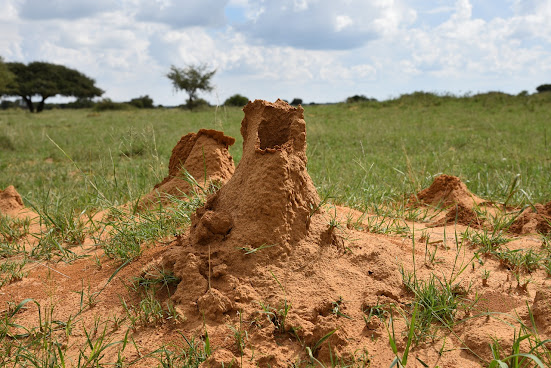Termites can be troublemakers in gardens, causing damage to woody structures and plant life. So, if you've discovered termites in your yard, it's important to address the issue effectively. Here are five successful methods to remove termites from your garden:
Keep Moisture Under Control:
Termites are attracted to damp spaces as they thrive in environments with high moisture levels and available food resources. So it is essential to minimise damp wood and moisture collection across your garden. This can be accomplished by eliminating termite nesting areas, removing dead or dying trees, stumps, and other sources of moisture, and exercising caution when watering your garden.
Use Nematodes:
Beneficial nematodes are a safe and effective alternative to chemical pesticides, with no negative effects on non-target species like ladybirds, earthworms, and other beneficial garden insects. The process of introducing nematodes will be long-lasting as they can be used to control a wide variety of soil-dwelling and above-ground insects in gardens.
Boric Acid:
Available in fine powder, boric acid is one of the best ways to get rid of insects. When consumed by termites, this natural pesticide and wood preservative messes up their ability to absorb nutrients, resulting in their death. To use boric acid against termites, make a spray by mixing one teaspoon of boric acid powder with a cup of water and then apply it to the affected areas. Continue this process for three to five days until termite activity in your garden completely stops.
Know the Don'ts:
In addition to knowing ways to get rid of termites, there are several things you need to avoid. Such as using insect sprays, which are not effective in killing all termites as they can harm beneficial insects and even plants. They may also aggravate termites, forcing them to relocate elsewhere. Using pine sleepers is not considered much, as they do not repel termites and may drive them back to your garden. Moreover, shovelling up termites is ineffective as they live underground and cannot be removed from the surface.
Seeking Help from Pest Control:
Pest control professionals can assess the infestation's location, water source, and severity to recommend the best solution. In addition, they use methods of specific outdoor pest control, such as drilling holes to access underground spaces and applying chemical treatments to effectively eliminate termites. These precise openings allow for targeted and effective destruction methods to protect your property.
Conclusion:
These strategies offer an extensive approach to tackling termite issues in the garden, taking into consideration both effectiveness and environmental factors.
Moreover, if the infestation has increased and you are in search of pest control services, consider checking out Trulen Nolen India. Their trained professionals primarily analyse and then suggest the safest method to keep the infestation away from that place. Their expertise further includes methodological, scientific and technological pest management that doesn’t just get the job done but gets it done right. So don’t let termites take over your garden and visit Truly Nolen India for more information or to book the services.
Comments
Post a Comment